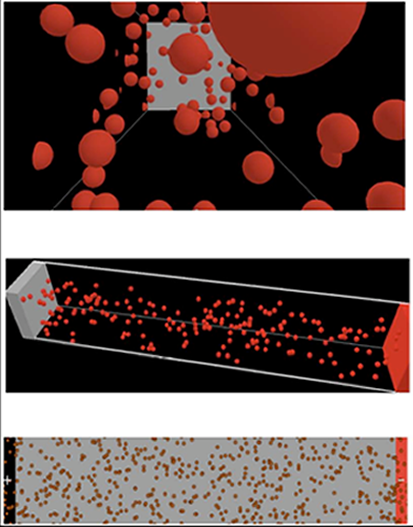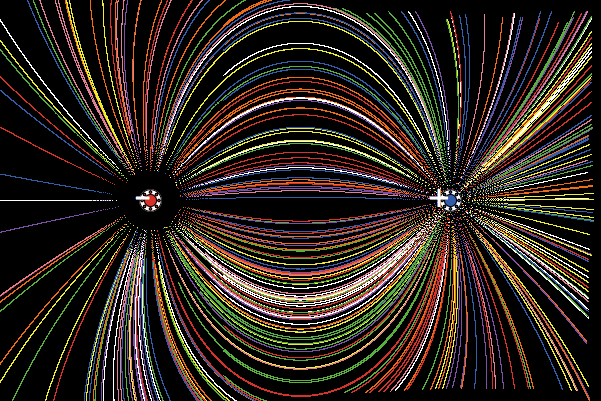NIELS
Netlogo Investigations in Electromagnetism
Main Page, Papers & Publications

Researchers
Pratim Sengupta & Uri Wilensky (PI)
Overview
NIELS is a curricular unit consisting of a sequence of simulations authored in the NetLogo modelling environment. Most students find electricity a particularly hard topic to learn, whereas, most of them find electrostatics is relatively much easier. Learning Scientists suggest that this is due to the fact that we do not have access to electrical phenomena at a microscopic level - i.e., at the level of atoms and electrons. NIELS is designed to address this issue. Models in NIELS depict phenomena aggregate-level phenomena such as current, voltage and resistance as emergent - i.e., they arise due to simple interactions between many individual-level "objects" such as atoms and electrons. Using these models, students as young as 5-th graders can actively explore and modify with the relevant phenomena by interacting with the models at various levels - e.g., running glass-box experiments by changing values of variables on the GUI and observing the resultant phenomena, and/or, by modifying and extending the underlying Netlogo program. No prior knowledge in electricity or programming in required.
We have succesfully tested NIELS in undergraduate, high school and middle school classrooms. NIELS is currently being implemented in elementary and middle schools in the US and Singapore.
Models
- These models are available in the NetLogo models library
- Electrostatics (Coulomb's Law)
- Lines of Force
- Polarization
- Ohm's Law
- Ohm's Law (with collisions)
- Series Circuit
- Series Circuit (with collisions)
- Parallel Circuit
- Parallel Circuit (with collisions)
Research Questions

- 1) How do students learn with NIELS?
- Microgenetic analysis of conceptual dynamics and conceptual change of learners at multiple levels (5th grade - Undergraduate)
- Involves both lab-based and controlled classroom studies
- 2) Design
- Making NIELS models and activities appropriable for learners of different ages, and diverse urban classrooms
- Extending NIELS to model non-linear circuits and semiconductors
- NIELS HubNet
- NIELS web 2.0
- Scaffolding analysis
- Embedding microgenetic assessments as scaffolds
- 3) Visuospatial thinking & NIELS
- How do learners process the visual and spatial information embedded in NIELS models?
- Design implications.
- 4) Is an expert's understanding really different that of a novice learner?
- Investigation of knoweldge representation in both experts and novices based on theoretical cognitive models and empirical studies.
- Using NIELS models as instruments for investigating knowledge representation in novice learners
Media Mentions
The NIELS 5-th Grade implementation in Wildwood School was featured in the Cable TV show "CPS Right Now!" and ran daily on cable channel 49 at 5 and 6:30 p.m for 5 weeks starting mid-February 2007. It was also featured on Channel 23's Chicago Works program.
The newspaper Pioneer Local (a member of the Chicago Sun Times group) featured the NIELS Wildwood School implementation as part of a story on Wildwood on February 15th, 2007.
NIELS was also featured in the Northwestern University's INQUIRY magazine (March 2007 Issue).